From Nepal’s School Education to Global Forums: Hari Singh K.C.’s Mission to Reform Nepal’s Education
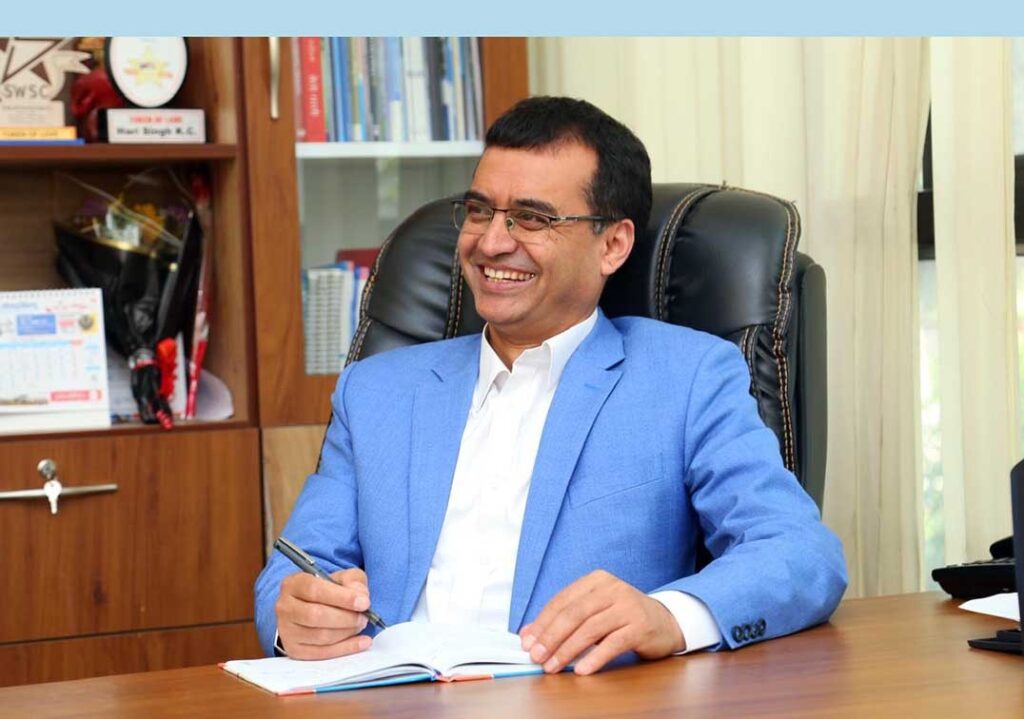
Mr. Hari Singh K.C. is a distinguished educator, academic administrator, and policy advocate, whose enduring commitment to educational reform and institutional development has significantly contributed to Nepal’s academic landscape. Over the course of his career, he has cultivated extensive expertise in pedagogy, strategic planning, and education policy, consistently demonstrating leadership that fosters innovation and advancement within the sector.
In his current capacity as the Assistant Campus Chief at Southwestern State College, Basundhara, Kathmandu, Mr. K.C. exercises strategic oversight and institutional leadership, ensuring the enhancement of academic quality and operational efficiency. His administrative acumen and visionary approach have played a pivotal role in advancing the college’s mission to uphold excellence in higher education.


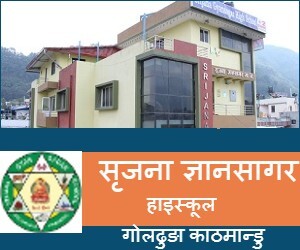

Beyond his institutional responsibilities, Mr. K.C. holds influential positions within prominent national and intellectual bodies. As a Central Member of the Education Department of the Nepali Congress, he actively participates in the formulation and assessment of educational policies that shape national discourse. His engagement in discussions with policymakers, ministers, former ministers, members of parliament, planning commission officials, educationists, and various stakeholders has contributed to the development of strategic blueprints for educational progress in Nepal.
Further demonstrating his dedication to intellectual and democratic principles, Mr. K.C. serves as a Central Member of the Society for Democratic Thinking, an organization that convenes intellectuals from diverse disciplines to promote democratic ideals, academic freedom, and civic responsibility. Additionally, he provides counsel as an advisor to the Democratic Intellectual and Professional Network Dhading, supporting initiatives that integrate democratic values with professional growth.
KC’s extensive international exposure, including visits to the United States, the United Kingdom, multiple European nations, Australia, Malaysia, Thailand, Singapore, and India, has afforded him valuable global perspectives that inform his educational philosophy and policy recommendations for Nepal.
An active contributor to national and international academic forums, Mr. K.C. has participated in numerous seminars, workshops, and capacity-building programs. Notably, on January 17, 2025, he delivered a colloquium presentation in Malaysia, organized by Infrastructure University of Kuala Lumpur (IUKL), on “The Impact of Emotional Intelligence and Transformational Leadership in Effective School Management.” His presentation reflects his scholarly engagement with contemporary paradigms in educational leadership and institutional governance.
Currently pursuing a Doctor of Philosophy in Business Administration at IUKL, Malaysia, Mr. K.C.’s research explores the relationship between emotional intelligence and transformational leadership in effective school management. His academic endeavors are conducted under the supervision of Dr. Hazrita Ab Rahim, with oversight from Dr. Tadiwa Elisha Nyamasvisva, Dean of the Faculty of Business, Information & Human Science at IUKL.
His scholarly contributions extend to the publication of numerous articles and interviews addressing critical policy issues within the education sector. These works have garnered recognition in academic circles and policymaking communities, further solidifying his standing as a thought leader in the field.
Beyond academia and political engagements, Mr. K.C. remains deeply committed to grassroots community development. As an active member of Tokha Municipality, he has spearheaded educational reform initiatives and public health and sanitation programs, demonstrating a steadfast dedication to civic improvement and sustainable community development.
His extensive international exposure, including visits to the United States, the United Kingdom, multiple European nations, Australia, Malaysia, Thailand, Singapore, and India, has afforded him valuable global perspectives that inform his educational philosophy and policy recommendations for Nepal.

The Collective Responsibility of School Transformation
The transformation of a school into an exemplary educational institution is a collective endeavor that cannot be accomplished by any single entity. Instead, it requires the dedicated engagement and collaboration of all stakeholders, both directly and indirectly involved in the educational process.
Successful school transformation necessitates the active participation of various groups, including educational associations, government bodies at the state and local levels, and diverse sectors connected to education. Principals, teachers, parents, students, school management committees, parent-teacher associations, community education advocates, and socially engaged organizations all play essential and interconnected roles in ensuring academic excellence.
The Education Development and Coordination Units operating within respective municipalities and districts serve as crucial facilitators, overseeing the process from policy formulation to implementation. While the roles and responsibilities of each individual and organization may vary, their coordinated efforts are fundamental to achieving sustainable and meaningful educational reform. Only through unified collaboration can schools evolve into thriving centers of knowledge, growth, and opportunity.
To maintain quality assurance, the administration of the Secondary Education Examination (SEE) should be conducted either at the provincial level or within districts.
The Role of the Education Development and Coordination Unit
The debate surrounding the necessity of maintaining an Education Development and Coordination Unit at the district level has gained significant attention in recent discussions. With the nation’s transition to a federal governance structure, some argue that such a unit, resembling the former District Education Office, is no longer required. Others contend that a district-level body remains essential to oversee and coordinate education administration within the region. The resolution of this matter is anticipated in the forthcoming School Education Act, which is currently under parliamentary review.
Should the structure be retained, a unified district-level education policy and program must be developed to enhance overall educational quality. Key priorities would include establishing a standardized academic calendar, creating a district-level training institute, and leading capacity-building programs for principals, teachers, and parents. A policy of appointing school principals from within the district with a tenure of at least five years could foster stability and accountability in leadership.
To maintain quality assurance, the administration of the Secondary Education Examination (SEE) should be conducted either at the provincial level or within districts. Additionally, to support students preparing for the SEE, districts could initiate campaigns to produce and distribute high-quality video lessons in core subjects such as English, Mathematics, Science, Nepali, and Social Studies. These instructional materials, developed by experienced educators, could be uploaded to a dedicated online platform and integrated into classroom learning. This initiative would not only enhance academic performance but also encourage the effective use of information and communication technology in education.
By ensuring structured policy implementation, fostering professional development, and leveraging digital learning resources, the Education Development and Coordination Unit could play a crucial role in sustaining and advancing Nepal’s educational framework.

The Role of Local Government in Education Management
According to Annex 8 of the Constitution, local governments hold full authority over the management and coordination of both basic and secondary education. With school-level governance now devolved to the municipal level, the responsibility for educational planning and implementation rests primarily with local authorities. Consequently, municipalities must take proactive leadership in advancing school education by formulating a comprehensive municipal education plan, establishing a standardized academic calendar, and ensuring efficient coordination of all educational activities within their jurisdiction.
Additionally, local governments should oversee the organization of extracurricular programs, facilitate regular meetings for principals and teachers, and implement capacity-building trainings, seminars, and workshops aimed at improving educational standards. Strategic school rationalization initiatives also fall under their purview, ensuring the effective mobilization of financial resources and the overall holistic development of the local education system.
To strengthen school leadership, local authorities can mandate that principals complete an academic course from a recognized university focusing on educational, administrative, and financial management. Furthermore, schools can be required to submit written commitments to improve student outcomes through a structured, holistic approach. Local governments may also establish contracts or formal agreements with principals, outlining responsibilities related to educational transformation and academic excellence.
To promote accountability, schools should be encouraged to set clear learning achievement targets, with teachers guided in developing thematic action plans aligned with those objectives. Local governments can further strengthen monitoring mechanisms by requiring headteachers and teachers to prepare a checklist, undergo self-evaluation processes, and assess the effectiveness of their plans independently.
For increased transparency, municipalities should publish the annual action plans prepared by headteachers and teachers on official websites, ensuring public accessibility. Furthermore, quarterly meetings between local authorities and school leaders can facilitate performance evaluations, with progress reports uploaded to the local government’s online portal for accountability. By making both promised yearly action plans and actual performance records publicly available, municipalities can enhance motivation, encourage sincerity, accountability, and responsibility among educators, and foster meaningful improvements in school management.
To further inspire excellence, local governments should introduce a reward or honor system based on the performance of educators and school leadership. Recognizing achievements will not only reinforce commitment to quality education but also foster a culture of continuous improvement and innovation within the local education system.
Enhancing Education through Local Government Initiatives
To ensure educational excellence, local governments must take proactive steps to enhance the quality of schooling through public-private partnerships. These collaborations can bring innovative resources to the education sector, fostering a dynamic learning environment. Additionally, municipalities should implement the “Teacher’s Diary” system, outlining daily, quarterly, and yearly academic plans to maintain organized and effective teaching strategies.
Hosting annual educational fairs and demonstration programs is crucial in showcasing students’ learning progress. These events should engage stakeholders, highlighting students’ knowledge and skills while promoting cultural heritage through exhibitions featuring traditional attire, musical instruments, and performances.
To drive sustained improvements, municipalities must establish a data bank or roster of experts and organize regular discussions with scholars and educators. These initiatives would provide valuable insights, enabling schools and communities to align with global educational trends. Leveraging experts’ knowledge, skills, technology, and innovative ideas, local governments can introduce policies that modernize the education sector.
Furthermore, local governments must ensure that schools remain independent from political influence, allowing education to flourish based on merit and structured development. Advancing models such as residential schools and technical education institutions can provide students with specialized skills and career-oriented learning. Additionally, a result-based subsidy system that includes rewards or corrective measures should be established to enhance school performance.
Integrating a “Happy Curriculum” at the municipal level is another vital step in holistic education. This curriculum should focus on yoga, patriotism, discipline, cultural education, and social responsibility, encouraging students to reflect on fundamental questions like:
• Who am I?
• What is my role in society and the nation?
• What actions should I take to contribute positively?
Students should be encouraged to adopt healthy habits, including proper sleep schedules, nutritious eating, and life skills development, ensuring their overall well-being.
A localized curriculum should serve as a benchmark for each municipality, incorporating regional geography, economic opportunities, religious heritage, and other significant aspects of the area. This framework should enable students to develop problem-solving skills, identify local threats and opportunities, and explore community development possibilities beyond mere linguistic familiarity.
Additionally, post-secondary education should include skill-development initiatives, ensuring that every student acquires at least one practical skill after completing Class 12. This approach will empower graduates with critical thinking, creativity, innovation, entrepreneurship, and problem-solving abilities, equipping them for success in both academic and professional endeavors.
By effectively implementing these strategies, local governments can create a transformative education system, fostering a generation of independent thinkers, innovators, and responsible citizens capable of shaping a better future.
The Role of the School Management Committee in Educational Excellence
While education development and coordination units and municipal authorities play crucial roles in policy formulation and implementation, the School Management Committee (SMC) remains central to establishing a school’s identity and ensuring its effectiveness. Schools that are widely regarded as successful—both by students and parents—have demonstrated that strong governance by the SMC is indispensable to fostering a thriving educational environment.
The primary responsibility of the School Management Committee is to facilitate regular discussions between teachers and parents, creating a framework for analyzing student performance, exam results, and academic progress. These discussions should foster engagement between parents, teachers, and students, ensuring a collaborative effort to improve educational outcomes. The school principal and teachers must actively participate in and support these initiatives to ensure productive dialogue and meaningful interventions.
Furthermore, the SMC should promote student participation in both academic and extracurricular activities, reinforcing a well-rounded learning experience. The committee plays a vital role in designing and implementing a comprehensive school improvement plan, focusing on resource allocation, technological integration, and the establishment of a technology-friendly learning environment. Providing students with the necessary resources to enhance learning and adopting age-appropriate technological advancements are essential components of this strategy.
Additionally, the School Management Committee must prioritize a welcoming and inclusive atmosphere for students. Upon arrival at school, learners should feel comfortable, supported, and motivated, fostering a sense of belonging that encourages academic growth. By cultivating a warm and positive school environment, the committee contributes to student well-being and engagement.
Enhancing school infrastructure is another critical responsibility. The committee should work to develop a student-friendly educational setting, ensuring that academic spaces and extracurricular facilities are well-maintained and optimized for learning. By supporting smooth administrative operations and addressing daily school management challenges, the SMC helps sustain an efficient, effective, and student-centric institution.
Through structured leadership, proactive engagement, and collaborative governance, the School Management Committee plays an indispensable role in shaping educational success. Schools that uphold strong management practices experience better student outcomes, enhanced learning environments, and greater community trust, reinforcing the SMC’s significance in modern education.
By embracing visionary leadership, fostering student engagement, and integrating practical skills into education, the principal plays an indispensable role in shaping a thriving, progressive school environment that prepares students for academic success and professional growth.
The Role of the Principal in School Leadership and Development
While the local, state, and federal governments are responsible for providing essential resources and establishing policy frameworks, the true transformation of a school depends on its leadership. A school’s progress and reputation are shaped by the principal and teachers, who carry the responsibility of creating an exemplary educational institution.
A strong principal is central to this process, requiring expertise in academic, administrative, and financial management. The selection of an effective school leader must be conducted through a competitive, research-based process that evaluates visionary thinking, social engagement, and leadership capabilities.
To ensure transparency and accountability, the principal must lead the implementation of a school improvement plan, focusing on physical infrastructure development and quality learning outcomes. Strengthening community partnerships is essential to fostering a dynamic and engaging educational environment. This includes:
• Activating the teacher-parent association
• Launching the “My School, My Responsibility” campaign, mobilizing teachers, parents, and alumni
• Providing awareness programs for parents
• Collaborating with high-performing schools
Moreover, establishing a teacher code of conduct, developed with active teacher participation, promotes professionalism and self-regulation. Involving students in the creation and enforcement of this framework strengthens their sense of responsibility and leadership.
Initiatives to Improve the Educational Environment
A principal’s role goes beyond administration—it includes introducing student-centered initiatives to enhance education. Key activities include:
• Implementing child-friendly and non-punitive teaching methods
• Arranging psychologists and counselors to support student well-being
• Conducting exam question paper workshops to improve assessment quality
• Establishing a complaint box for students to voice concerns
• Creating formal agreements with teachers and students to improve academic performance
• Encouraging student leadership through children’s clubs
• Using advanced technology in classroom instruction
• Profiling each student and arranging personalized assessments
• Setting up a modern, technology-friendly library
• Bridging education with real-life skills
Linking Education with Practical Skills
Beyond traditional academics, schools should integrate practical skill development to prepare students for real-world challenges. Schools can teach students:
• Agriculture and vegetable farming, with locally viable crops
• Craft-making, such as Duna Tapari and Sinka, to support local industries
• Pickle production and other marketable goods, enabling entrepreneurship
• Traditional music (Naumati Panche Baja, Madal, Bhajans) to preserve and professionalize cultural arts
For such initiatives to succeed, municipalities should facilitate marketing and distribution, ensuring students’ products reach consumers. Schools can consume student-grown vegetables, while municipalities and teachers prioritize purchasing student-made goods.
Ensuring Accountability and Motivation
The principal should establish a reward and corrective system, regularly monitor classrooms, and provide need-based supervision. Such measures promote efficiency, discipline, and a culture of continuous improvement within the school.
By embracing visionary leadership, fostering student engagement, and integrating practical skills into education, the principal plays an indispensable role in shaping a thriving, progressive school environment that prepares students for academic success and professional growth.
The Role of Teachers in Educational Excellence
The primary responsibility of teachers is to enhance students’ learning outcomes and ensure satisfaction among both students and parents. While broader educational policies are shaped by local, state, and federal authorities, it is ultimately the teacher’s duty to cultivate a student-friendly environment within the classroom. Teachers must recognize that student performance is a direct reflection of their instructional methods, and rather than attributing challenges to external factors, they should focus on self-reflection and improvement.
Integrating Technology and Innovation in Teaching
To keep pace with modern educational demands, teachers must embrace technology and incorporate innovative teaching-learning practices into their classrooms. The teaching profession serves as a foundation for developing knowledgeable, ethical, disciplined, and competitive individuals. Beyond delivering academic content, teachers play a vital role in fostering students’ proficiency in information and technology. To achieve this, educators should:
• Establish subject-specific clubs to facilitate collaborative learning
• Prioritize digital education and implement technology-friendly teaching methods such as e- learning platforms
• Consistently use lesson plans, ensuring structured and effective learning experiences
• Develop annual academic plans, sharing them with school management and parents
The Teacher as a Leader and Role Model
An exemplary teacher embodies the qualities of a mentor, leader, and visionary, inspiring students to embrace a lifelong pursuit of knowledge. Through dedication, enthusiasm, and innovative teaching methods, an effective teacher creates a dynamic learning atmosphere—one that encourages students to think critically, brainstorm solutions, and develop creative skills rather than rely on rote memorization.
Teachers must identify individual student interests and capabilities, guiding them toward academic and practical excellence. Beyond traditional curriculum, teachers should prioritize:
• Moral education that instills integrity and ethical values
• Practical education that prepares students for real-world applications
• Regular reading habits to foster intellectual curiosity
• Open discussions and effective communication between teachers and parents to ensure collective student support
By upholding professional integrity, adopting progressive teaching techniques, and fostering holistic student development, teachers play a transformative role in shaping the future. Their commitment to education extends beyond the classroom, leaving a lasting impact on students and the broader community.

Conclusion: Strategic Educational Transformation
A comprehensive strategy must be established to facilitate short-term, mid-term, and long-term educational planning and implementation. This requires coordinated efforts among planners, policymakers, educationists, researchers, and political organizations to align educational agendas at national, provincial, district, and local levels. Through this approach, an education system can be developed that embodies a “learn and earn” model, fosters practical knowledge, supports a knowledge-based economy, and integrates research-driven, skill-oriented, and employment-focused education. Additionally, a strong emphasis should be placed on technology-friendly learning and entrepreneurial development, ensuring that students acquire the competencies needed for both economic and social transformation.
Education must be expanded and restructured to bridge the gap between knowledge and practical skills, linking education to labor and labor to the market. It is imperative to showcase that Nepal is rich in opportunities and untapped potential. The widespread perception that Nepal lacks possibilities, suffers from systemic challenges, or offers no future prospects must be actively dismantled—not merely through rhetoric, but through measurable action and strategic execution.
By prioritizing an education system that drives innovation, entrepreneurship, ethical leadership, and community empowerment, Nepal can cultivate a generation of capable, forward-thinking individuals who contribute meaningfully to national development and global competitiveness.





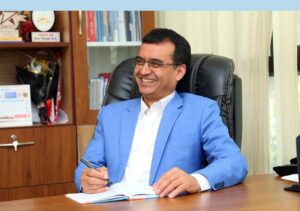


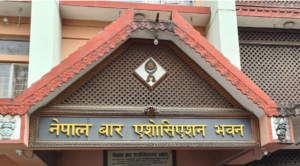
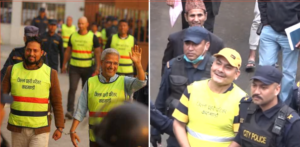

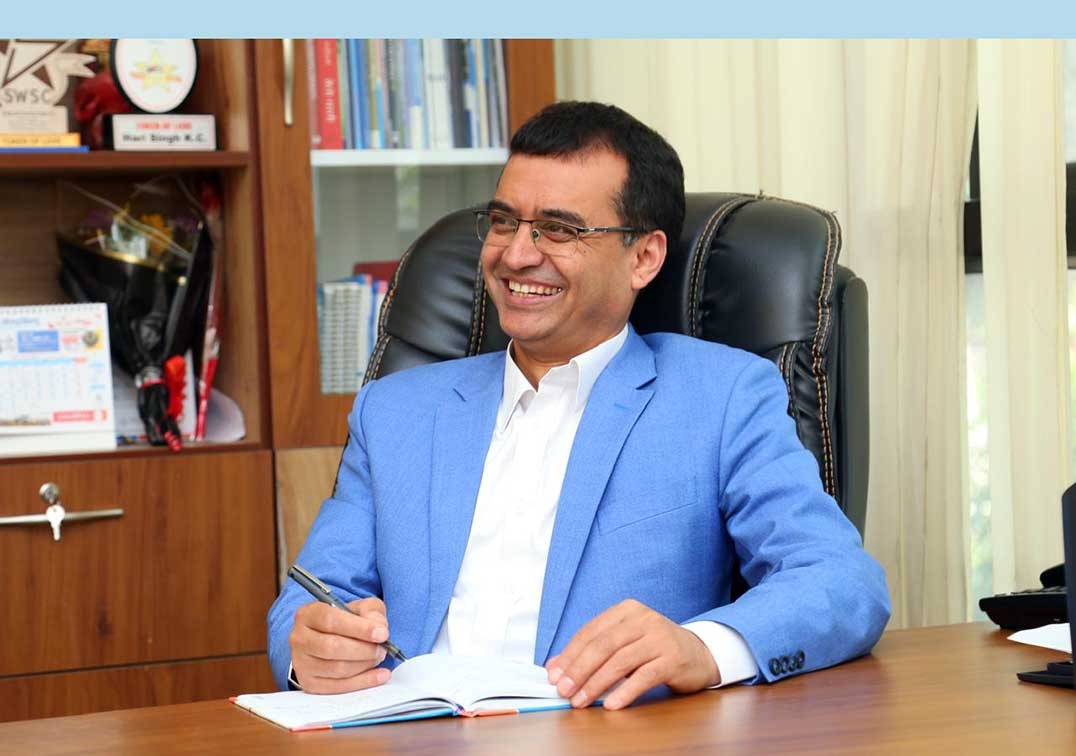

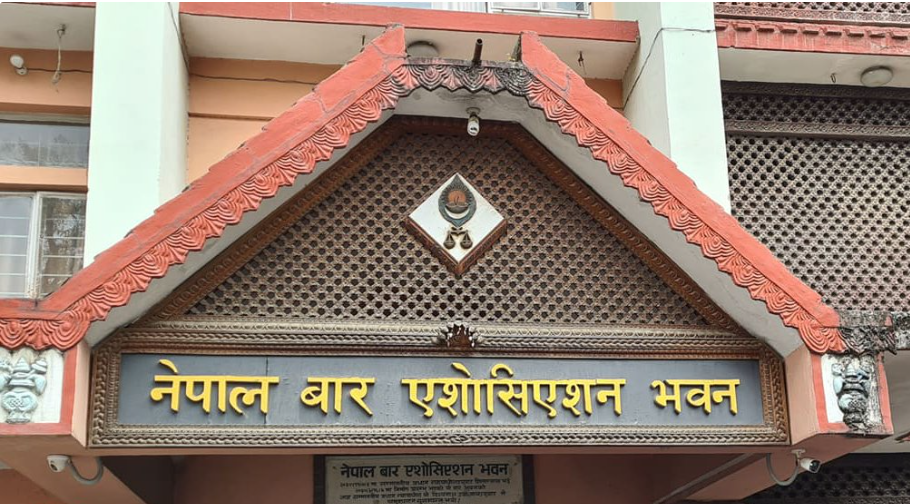
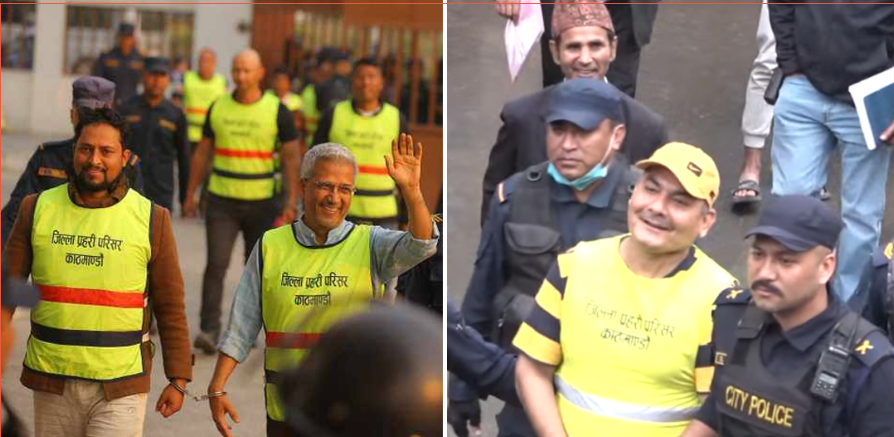



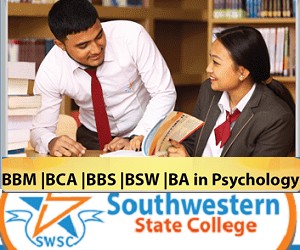

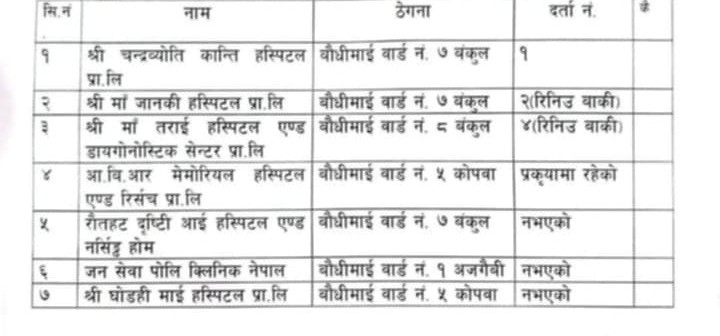
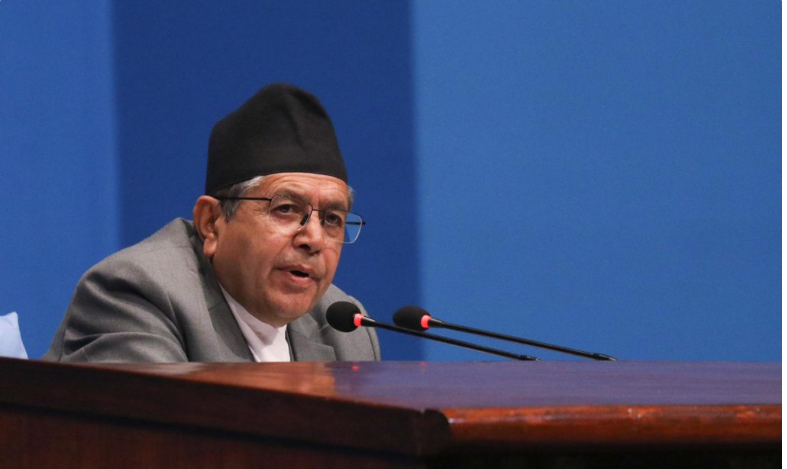
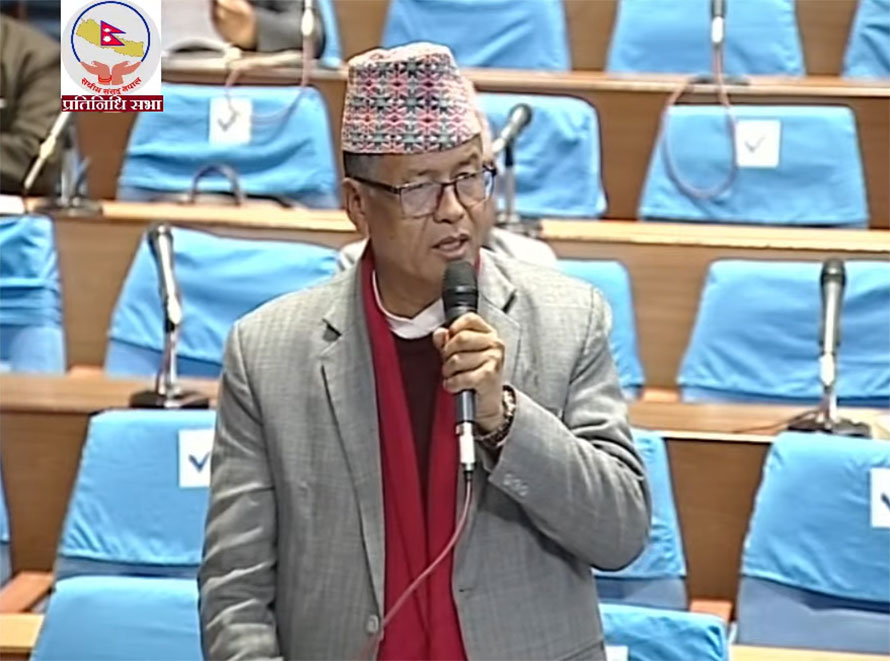
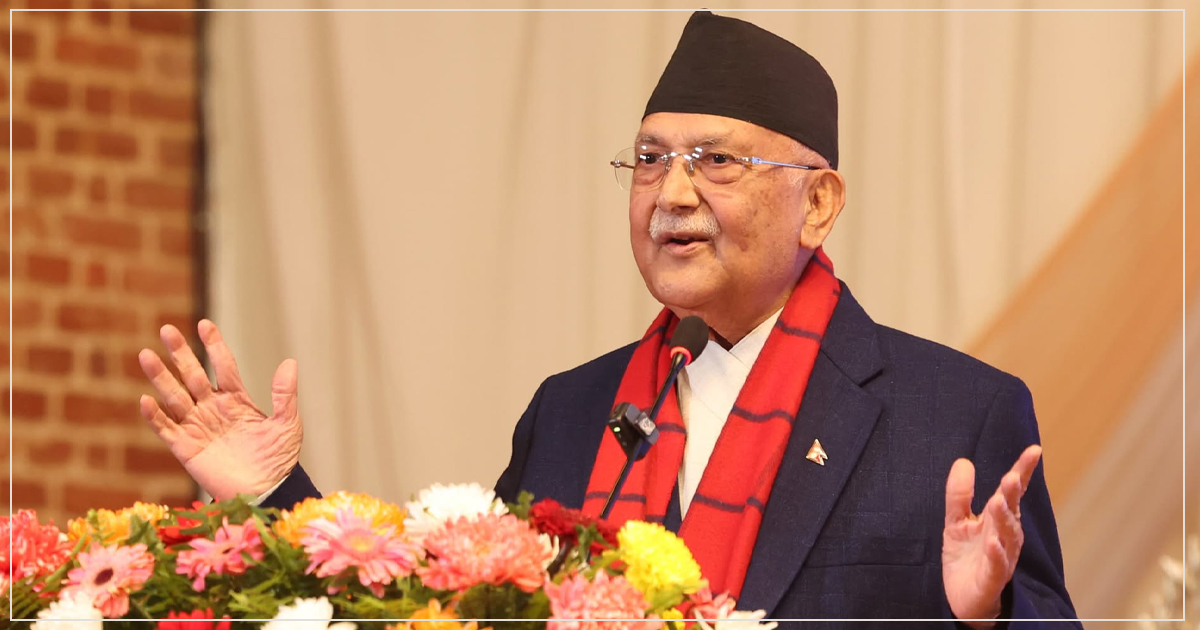
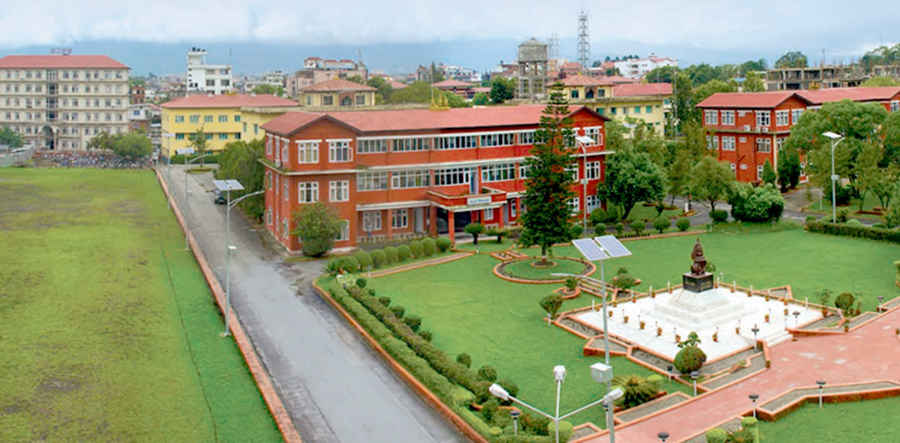

प्रतिक्रिया दिनुहोस्